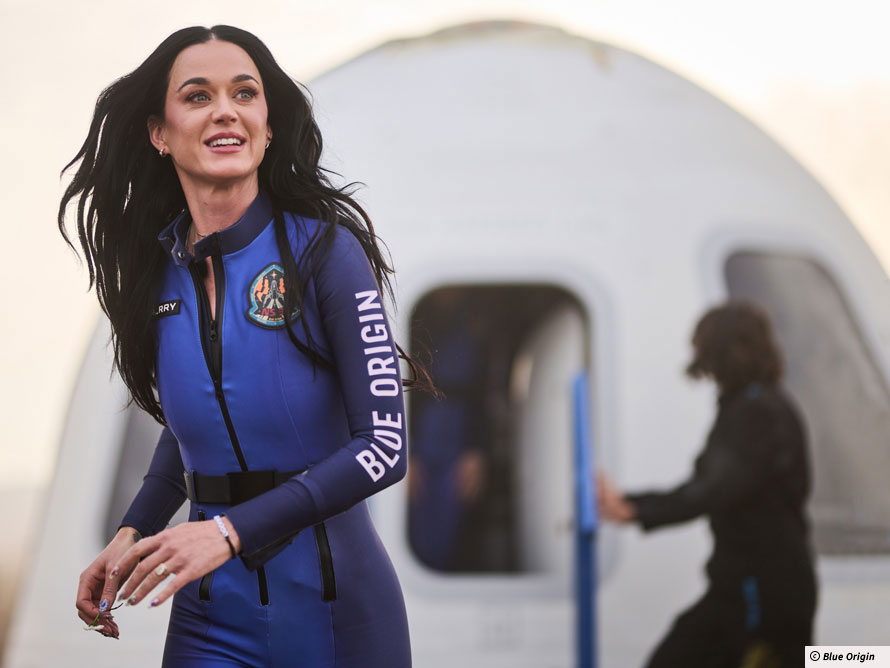Should we be focusing on Earth instead? Katy Perry and five others have made headlines with their all-female space flight, but some argue that such trips are a waste of resources.
A pop star’s journey out of this world
 Kissing the ground: ET singer Katy Perry sang the classic song What a Wonderful World during her 11-minute voyage to space on Monday.
Kissing the ground: ET singer Katy Perry sang the classic song What a Wonderful World during her 11-minute voyage to space on Monday. Glossary
Jeff Bezos - The founder of Amazon and one of the world's richest people.
Katy Perry - An American singer and songwriter, born in 1984. She was the world's highest-paid female musician in 2015 and 2018.
Soviet - Relating to the Soviet Union, a powerful group of communist republics, the biggest being Russia, that existed from 1922 to 1991.
Emancipation - The process of being set free.
Emissions - Things that are released, such as gases, as part of a process. E.g. greenhouse gases.
Stratosphere - A layer of the atmosphere which extends for 31 miles above the Earth’s surface.
Ozone layer - A layer of gas around 10 kilometres above the Earth’s surface which absorbs ultraviolet radiation (a type of heat that reaches the planet from the sun). The layer has a very important role as exposure to too much ultraviolet can be bad for living things.
Brian Cox - An English physicist at the University of Manchester best known for his work presenting popular BBC documentaries. He was also a member of the band D:Ream.

